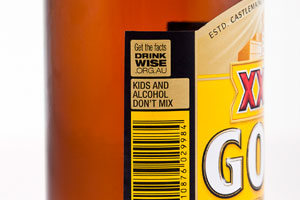ALCOHOL sales have decreased only slightly since the introduction of the “alcopops” tax in 2008, prompting public health advocates to renew calls for more comprehensive alcohol reform.
An analysis of alcohol sales data in the latest MJA found that sales of ready-to-drink spirit-based beverages (alcopops) decreased by 30% in the first full year after the introduction of the tax (2008-09). (1)
Overall alcohol sales also declined, but only by 1.5%, suggesting that alcopop drinkers switched to other drinks.
“Narrowly focused measures will have narrow impacts that can be circumvented, thus limiting the intended benefits”, the researchers wrote.
Professor Mike Daube, a coauthor of the MJA paper and director of the Perth-based McCusker Centre for Action on Alcohol and Youth, said the fact that alcohol sales reduced overall was “enormously encouraging”.
“This shows the start of what’s possible, but it also shows that we need broader action”, he said.
However, Stephen Riden, of the Distilled Spirits Industry Council of Australia, said the alcohol sales data used by the MJA researchers was flawed because it did not include cider, which had recently boomed in popularity.
Mr Riden said the global financial crisis would also have reduced expenditure on non-essentials, such as alcohol, regardless of the tax.
Professor Daube acknowledged the complexity of determining the exact impact of the tax and the difficulty of accounting for factors such as pricing and promotion strategies used by industry.
The researchers called for a comprehensive approach to reducing alcohol harms, including a graduated volumetric alcohol tax, a minimum price per standard drink, regulation of alcohol promotion and enhanced alcohol education.
“The government acted wisely to introduce the alcopops tax but it was by no means enough”, they wrote.
Earlier this month, Professor Daube and other health experts visited Canberra, calling for alcohol tax reform, with the group given indications that alcohol tax will be discussed at the federal tax forum in October.
Dr Alex Wodak, director of the Alcohol and Drug Service at St Vincent’s Hospital, Sydney, said the recommendations made in the MJA paper were strongly supported by almost everyone who worked in alcohol harm prevention, and called on the government to stand up to the alcohol industry.
“The problem is that the public health ‘David’ is weak, and the alcohol industry ‘Goliath’ is incredibly strong”, he said.
Dr Wodak said that alcohol tax reform was the “single most important objective” to reduce alcohol-related harm.
“The same arguments that are being made about how the carbon tax can encourage people to change their behaviour … apply exactly with alcohol tax reform.”
The research comes as the alcohol industry last week launched a series of health warning labels on some wines, beers and spirits, with slogans such as “kids and alcohol don’t mix”.
Professor Daube described the labels as “insipid and useless” and said they were an attempt to circumvent the government’s possible introduction of mandatory warning labels.
“The people who decide on health warnings should be the health authorities, not industry”, Professor Daube said.
– Sophie McNamara
Posted 18 July 2011

 more_vert
more_vert
I suspect that a return to policing public drunkenness on the streets may do more for reducing alcohol consumption at pubs and clubs than advertising campaigns or new taxes. But I’d support banning those drinks designed to taste like juices or soft drinks while getting you started on a pattern of excess drinking, If you can’t taste the alcohol content you become less aware of what and how much you are drinking.
I told an ALP conference grog ads should be only facts approved by health authorities. Federal leader Whitlam objected: the NHMRC deplored smokes, not grog. State leader Don Dunstan said barring ads would damage Adelaide’s wine festival. S.A. anesthetist Richie Gun MHR then moved: Change “alcohol” to “drugs” (stressing misuse of prescriptions). Nothing resulted. As federal minister I chided The Age for picturing a Guild Chemists’ Health Run winner with a toast on page 1 and showing an art prize winner celebrating in his dam with a goblet (of dam water at the news reporter’s suggestion). The editor told me I was impertinent. Our culture makes football winners grog pushers.